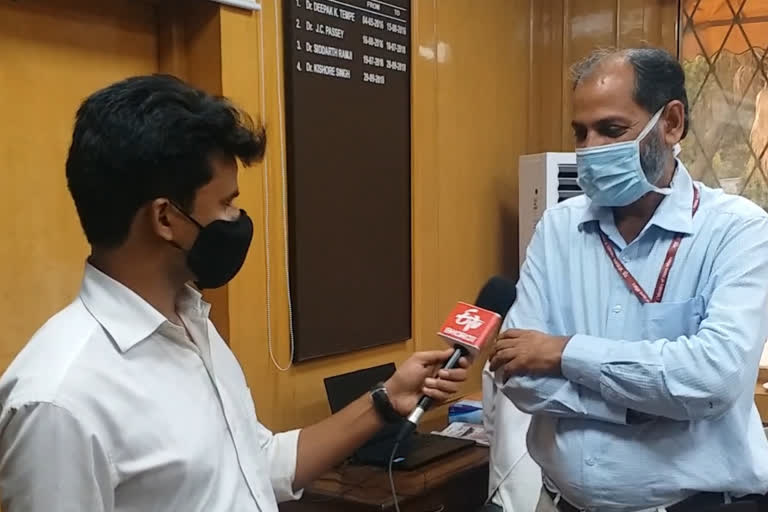New Delhi: After plasma therapy has shown encouraging results and has reduced the Covid-19 death rate by more than 50%, the Lok Nayak Jan Prakash hospital administration has decided to conduct further trials on 200 patients, said Dr. Suresh Kumar, Medical Director of LNJP Hospital.
Kumar said that a total of 400 COVID-19 patients will undergo treatment out of which plasma therapy trial will be conducted on 200 patients to study the efficiency of the medical process in a detailed manner to prepare a detailed report.
Giving details about the plasma therapy, Dr Kumar told ETV Bharat, "Till date, we have conducted plasma therapy on twenty COVID-19 patients and it has shown positive results on critical patients. LNJP was the first hospital to start the plasma therapy in the country and seeing the satisfactory results, the management has decided to go further."
READ: Kejriwal announces India's first plasma bank in Delhi
Asked about how the plasma therapy works, Kumar explained, "Convalescent plasma therapy aims at using the antibodies from the blood of a recovered patient to treat critical Covid-19 patients. Recovered patients can donate plasma after two-three weeks as their blood becomes capable of producing anti-bodies which can destroy the deadly virus.
"Everybody cannot donate plasma and a certain health protocol has to be followed. The respiratory rate of corona patients can go upto 40 respiration per minute (rpm). Plasma therapy is given to those patients when respiratory rate reaches 25 rpm and the oxygen level drops upto 93%. We also conduct X-rays to check whether the patient is suffering from pneumonia or not," he explained, adding that a set of guidelines has to be followed.
READ: DDMA assesses COVID-19 situation in Delhi, decides to maintain status quo in Unlock 2
Responding to who cannot donate plasma, the senior doctor replied, "Cancer survivors, female undergoing pregnancy, diabetic patients, people with hypertension and high blood pressure ailments, kidney, lung and heart patients cannot donate plasma. Infact, only moderate and severe patients can undergo plasma therapy."
Delhi Chief Minister Arvind Kejriwal today announced the first plasma bank in the country for the novel coronavirus patients and requested COVID survivors to come forward and donate plasma to save lives. Helpline number was also launched to register names for plasma donation. (With input from IANS)



